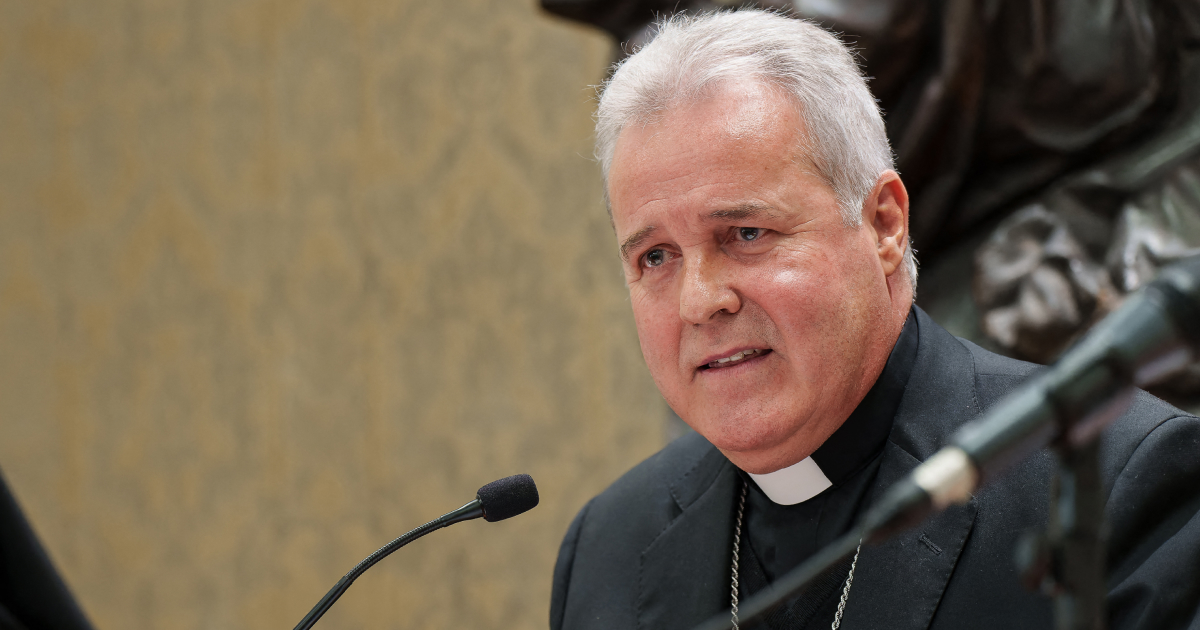The government announcement that digital ID is to become mandatory by the end of this parliament has provoked an outcry from across British society. Politicians and public figures have condemned the decision, articles and polls have expressed widespread opposition and even tech giant Palantir has said it won't bid for the contract due to a lack of public support.
The government's response to a protest petition that rapidly gained 2.7 million signatures that it will impose the new system has created further outrage. Social media has been ringing with cries of “I will not comply”.
All this prompts the thought: could the years ahead cause many of us to draw on a noble, half-forgotten strand of British history which tells of the principled dissenter or conscientious objector?
The religious conflicts of the sixteenth and seventeenth centuries spawned men and women who were literally prepared to die for their beliefs. Subsequently, the doctrinaire demands of the established Church generated a kind of parallel society: Britain's non-conformists had their own churches, schools and communities.
I grew up hearing about the conscientious objectors of the First World War. Fast forward a hundred years and those of us with a deep knowing that the “BritCard” heralds something very wrong have a different challenge. This time, the obligation to oppose is on social and political grounds, as a responsible member of a democratic society. As Martin Luther King put it: "One has not only a legal but a moral responsibility to obey just laws. Conversely, one has a moral responsibility to disobey unjust laws."
Here, specifically, are the reasons why I'm a digital ID dissenter.
Firstly, digital ID is a recipe for an unprecedented level of centralised control, abolishing some basic rights and changing the relationship between the citizen and the state.
The government is proposing, via a report from the think tank Labour Together, to create a centralised database linking personal information held by multiple agencies and potentially accessible to large numbers of people. Citizens are to use an app to access a system that will become a requirement for employment, renting, accessing the NHS and other services.
Contrary to the idea that Britain is “falling behind” on digital ID, only a few countries have such systems. They include Estonia, Ukraine and India; all have lessons of the red flag variety.
During Covid, the digital ID systems of both Ukraine and Estonia became host to vaccine passports. The Baltic nation, which pioneered a mandatory digital identity system for its 1.3 million citizens in 2002, worked with the WHO to connect health information with individual's digital ID. In Ukraine, its Diia (“the state and I”) system was introduced to reduce bureaucracy but quickly became the vehicle for the health certificate Ukrainians needed to access public spaces.
While in the UK, Tony Blair repeatedly argued for vaccine passports linked into digital ID as the “way out” of lockdowns and a permanent public health necessity.
The recent past provides clear indications that digital ID would be used to infringe a basic right and the foundation of western healthcare: informed consent.
And there's more. The BritCard report argues that digital ID could help tackle “online harms” – a worrying indication that, with Ofcom, the government would consider making identify verification a condition of access to the Internet.
A democracy that wants to stay a democracy does not put in place measures which could be abused by a future government. And as Britain's free speech crisis and body of laws increasing police powers and limiting protest grows by the week – with the harrowing recent examples of silent prayer being treated like some sort of “thought crime” – we do not need to look far to see how digital ID could be used to enforce compliance with the latest government edict.
My second reason has to do with privacy and security. Digital ID systems are a treasure trove for those seeking large amounts of very personal data and, as such, highly susceptible to leaks, hacking and cyber attacks.
India's digital ID system Aadhaar involves a 12-digit unique identification number based on an individual's biometric and demographic data, including fingerprints and iris scans. In 2018, the database suffered multiple breaches and the personal information of over a billion people was sold on the dark web.
Even the system built by tech-savy Estonia has been subject to numerous breaches, including by someone thought to have logged in as an administrator.
Could such a thing happen in a British system? It already has, and with the very system the government is proposing to use for digital ID.
A senior civil servant found that One Login was being routinely accessed by users with ‘do anything’ system-administrator privileges who lacked security clearance – and there were no safeguards in place for those working from home.
Given that Britain's public service providers are increasingly working with corporate partners, our personal information would be potentially accessible to millions, including those outside UK jurisdiction.
The realities of India's biometric system illustrates my third objection. This is something along the lines of “the chaos of the computer” and the harm automated systems can do.
Registration with Aadhaar is not compulsory but has effectively become necessary as more service providers demand it, defying court rulings it should be voluntary. Glitches in the system such as finger print mismatches have led to the denial of benefits, resulting in the deaths of some of India's poorest.
Have we learnt to use digital technology wisely and well? Growing up before the Internet, I'm keenly aware of its newness and humanity's lack of maturity in the digital world. From the unwarranted rudeness of folk on social media to Western regulators trying to impose global censorship – I'm looking at you, Ofcom, as well as Australia's eSafety commissioner – it's clear we have some way to go before embedding every aspect of our lives into a digital network will work out well.
This leads me a final point about good governance, for which I am indebted to the late Dame Catherine Wybourne. As the prioress of a new Benedictine monastery, she told me she had learnt not to implement any change unless there was genuine consensus.
The government would do well to emulate her example, lest its digital ID programme run up against yet another problem: the non-compliance of a new generation of conscientious objectors.
RELATED: The satanic flavour of AI: don’t let children be cognitively cuckolded
Photo: graphic by Arcadia

















